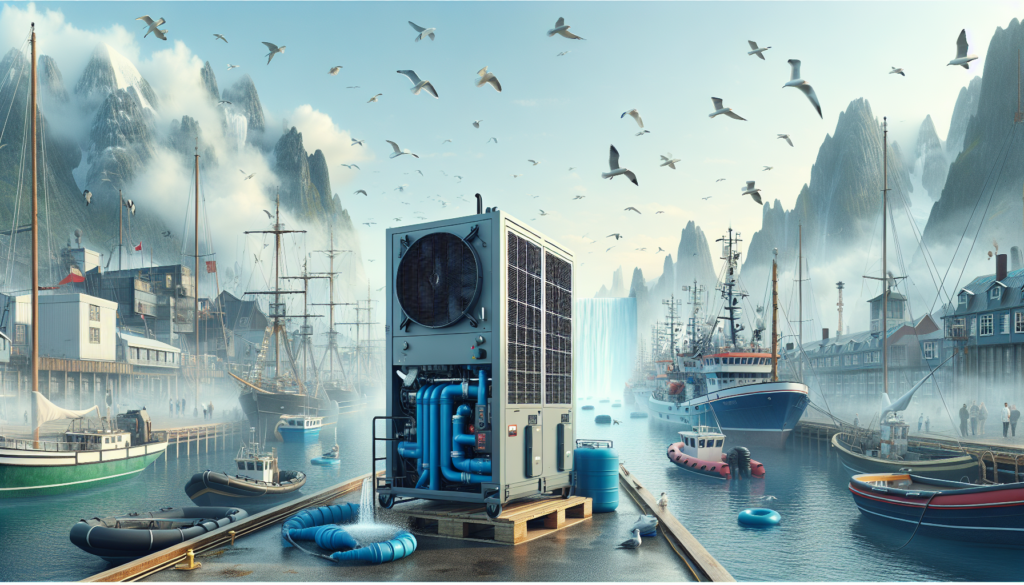Exploring the Depths of Marine Dehumidifiers: A Comprehensive Guide
When we think about marine environments, images of vast oceans, majestic marine life, and adventurous seafaring journeys often come to mind. However, one crucial aspect of marine environments that is often overlooked is humidity. Excessive moisture in marine vessels can lead to a host of issues, including mold growth, corrosion, and discomfort for passengers and crew members. This is where marine dehumidifiers come into play, offering a solution to combat humidity and create a more comfortable and safe environment onboard. In this comprehensive guide, we will delve into the world of marine dehumidifiers, exploring their importance, applications, and benefits.
The Importance of Marine Dehumidifiers
Marine dehumidifiers play a vital role in maintaining optimal humidity levels onboard vessels of all sizes, from small boats to large yachts and commercial ships. High levels of humidity in marine environments can lead to a variety of problems, including:
- Mold and mildew growth: Excess moisture in the air provides the perfect breeding ground for mold and mildew, which can damage surfaces, cause odors, and pose health risks to passengers and crew members.
- Corrosion: Metal components and equipment onboard vessels are susceptible to corrosion in high-humidity environments, leading to costly repairs and maintenance.
- Condensation: Condensation can form on windows, walls, and ceilings in humid conditions, creating unsightly water stains and potentially damaging surfaces over time.
By using marine dehumidifiers to regulate humidity levels, these issues can be effectively addressed, ensuring a dry, comfortable, and safe environment for everyone onboard.
Types of Marine Dehumidifiers
Marine dehumidifiers come in various shapes and sizes, each designed to suit different types of vessels and applications. Some common types of marine dehumidifiers include:
Desiccant Dehumidifiers
Desiccant dehumidifiers use a desiccant material, such as silica gel, to absorb moisture from the air. These dehumidifiers are often used in smaller vessels or in specific areas where moisture control is essential, such as engine rooms or storage compartments.
Refrigerant Dehumidifiers
Refrigerant dehumidifiers work by passing air over cold coils to condense moisture, which is then collected and drained away. These dehumidifiers are more commonly used in larger vessels and are effective at removing high levels of humidity from the air.

Applications of Marine Dehumidifiers
Marine dehumidifiers find a wide range of applications onboard vessels, helping to maintain ideal humidity levels in various areas. Some common applications of marine dehumidifiers include:
Cabin and Living Areas
Marine dehumidifiers are essential for keeping cabins and living areas dry and comfortable for passengers and crew members. By controlling humidity levels, these dehumidifiers help prevent mold growth, musty odors, and condensation on surfaces.
Engine Rooms
Engine rooms are particularly prone to high humidity levels due to the heat generated by engines and machinery. Marine dehumidifiers in engine rooms help prevent corrosion, mold growth, and other moisture-related issues that can affect the performance and longevity of equipment.
Cargo Holds
In commercial ships, marine dehumidifiers are used in cargo holds to protect goods from moisture damage during transit. By keeping humidity levels in check, these dehumidifiers help preserve the quality of cargo and prevent spoilage.
Benefits of Marine Dehumidifiers
The use of marine dehumidifiers offers a range of benefits for vessel owners, operators, and passengers alike. Some key benefits include:
Improved Air Quality
By maintaining optimal humidity levels, marine dehumidifiers help improve air quality onboard vessels, reducing the risk of mold spores, dust mites, and other allergens that can impact respiratory health.
Reduced Maintenance Costs
By preventing corrosion, mold growth, and other moisture-related issues, marine dehumidifiers can help reduce maintenance costs and extend the lifespan of equipment and surfaces onboard vessels.
Enhanced Comfort
Creating a dry and comfortable environment onboard vessels is essential for the well-being and comfort of passengers and crew members. Marine dehumidifiers help achieve this by regulating humidity levels and preventing the negative effects of excess moisture.
Expert Opinions
According to marine industry experts, the use of marine dehumidifiers is essential for maintaining the integrity and longevity of vessels, especially in humid or coastal environments. Captain John Smith, a seasoned seafarer with over 20 years of experience, emphasizes the importance of investing in high-quality marine dehumidifiers to protect both the vessel and its occupants from the damaging effects of excess moisture.
FAQs
Q: Are marine dehumidifiers suitable for all types of vessels?
A: Marine dehumidifiers come in various sizes and types to suit different vessels, from small boats to large ships. It is essential to choose a dehumidifier that is appropriate for the size and moisture levels of the vessel to ensure effective humidity control.
Q: How often should marine dehumidifiers be serviced?
A: Marine dehumidifiers should be serviced regularly to ensure optimal performance and longevity. It is recommended to follow the manufacturer’s guidelines for maintenance and servicing to keep the dehumidifier in top condition.
To Wrap Things Up
Marine dehumidifiers play a crucial role in maintaining a dry, comfortable, and safe environment onboard vessels of all sizes. By regulating humidity levels, these dehumidifiers help prevent mold growth, corrosion, and other moisture-related issues, ensuring the well-being of passengers and crew members. Investing in high-quality marine dehumidifiers is essential for vessel owners and operators looking to protect their assets and create a pleasant onboard experience.



